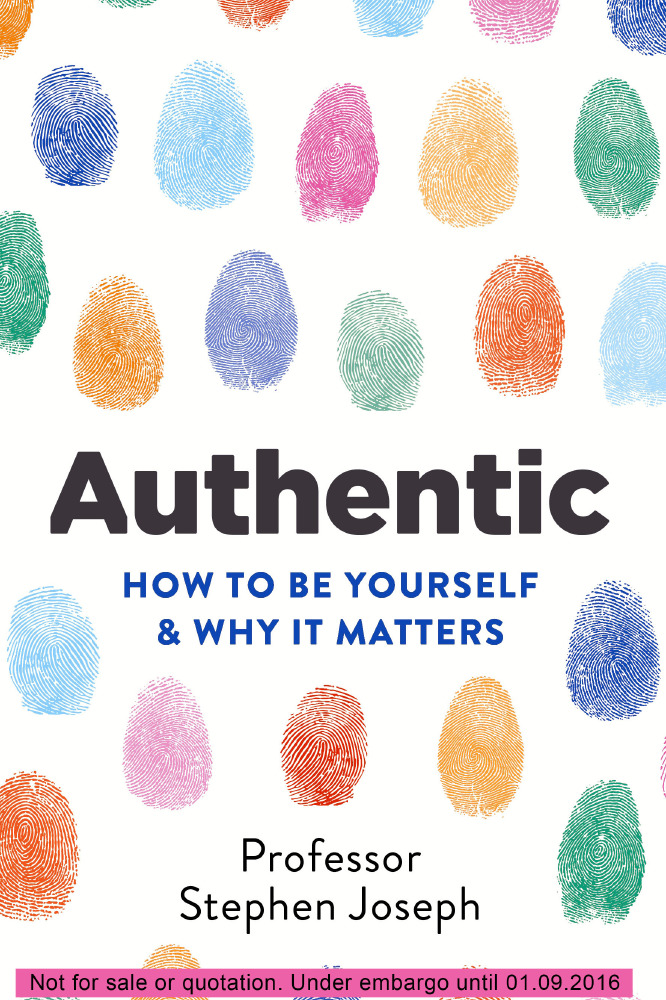Psychology research has shown that those in good quality intimate relationships are happier, healthier and even sleep better. One of the keys to a good quality relationship is its authenticity.

Stephen Joseph
Two psychologists, Frederick Lopez and Kenneth Rice identified two key components of authentic relationships: unacceptability of deception and intimate risk-taking.[i]
Unacceptability of deception refers to when people feel it to be important to be themselves in their relationship, even if it means their partner doesn't always see them at their best. Such people desire to be truly known by their partner for who they are, their strengths and weaknesses, and to know their partner for who they are. They prefer to have open and frank conversations. They desire truthfulness in their relationship, even if at times it can reveal things that are disappointing. Think about your own attitude to deception by reading the statements below:
• To avoid conflict in our relationship, I will sometimes tell my partner what I think he or she wants to hear, even if it's not true.
• I purposefully hide my true feelings about some things in order to avoid upsetting my partner.
Intimate risk-taking refers to when people desire to share their deepest thoughts and feelings with their partner. They don't want there to be secrets in their relationship, even if sometimes that may lead to disagreements. Their aim is to be completely themselves. Think about your own attitude to intimate risk taking by reading the statements below:
• I feel free to reveal the most intimate parts of myself to my partner.
• There are no topics that are 'off limits' between my partner and me.
If you want to deepen the level of authenticity in your own relationship you need to think about your attitudes to intimate risk taking and deception. Do you tend to say whatever will avoid conflict and keep your thoughts to yourself? Of course there will be times when this seems like the most sensible way forward, but in general this way of behaving will pile up problems for the future. Issues remain unresolved and if they later come to the surface trust will be threatened.
However, it is also important that there is reciprocity in attitudes between partners. Both need to have similar levels of commitment to intimate risk taking and the unacceptability of deception. An imbalance can leave one person feeling that they make all the effort in the relationship. Frustrated that their attempts are not met and matched it is likely that dissatisfaction will set in. If you want to foster authenticity in your relationship:
• Don't avoid discussing issues that are troubling you. Set time aside to talk.
• Talk about the rules of your relationship and be clear to each other what your boundaries are.
• Don't think that authentic relationships are effortless.
[i] Lopez, F.G. and Rice, K.G. (2006), 'Preliminary development and validation of a measure of relationship authenticity’, Journal of Counselling Psychology, 53, 362–71


